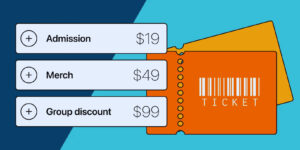Introduction:
Buying a car for the first time is an exciting milestone, but it can also feel overwhelming, especially with so many options, price points, and decisions to make. Whether you’re dreaming of a sleek sedan, a rugged SUV, or an efficient hybrid, understanding the Tips for First-Time Car Buyers process is key to ensuring you get the best value for your money.
In this guide, we’ll walk you through essential tips for first-time car buyers to make your journey smooth, stress-free, and satisfying.
1. Assess Your Needs
Before diving into the world of cars, it’s important to take stock of what you truly need. Consider your lifestyle, driving habits, and future needs. Ask yourself:
- Do you commute daily, or is the car mainly for weekend trips?
- How many passengers will you typically carry?
- Will you need extra cargo space for hobbies, sports gear, or work equipment?
- What type of weather conditions do you drive in? (Snow, rain, etc.)
Pro Tip: Make a list of must-have features such as fuel efficiency, safety features, or tech integrations. By focusing on your needs, you can narrow down your choices and avoid being swayed by flashy but unnecessary extras.
2. Set a Budget
Buying a car is a significant financial commitment, so establishing a clear budget is crucial. Your budget should take into account not just the purchase price of the car but also additional costs such as insurance, taxes, registration, fuel, and maintenance.
Key Points:
- Down Payment: Aim to make at least a 20% down payment on a new car, or 10% on a used car. This can help reduce monthly payments and interest rates.
- Monthly Payments: Follow the 15% rule. Your monthly car payment shouldn’t exceed 15% of your take-home pay.
- Other Expenses: Don’t forget ongoing costs such as gas, insurance, and regular maintenance.
Pro Tip: Use online car affordability calculators to determine a comfortable price range for your vehicle. This will prevent you from stretching your finances too thin.
3. New vs. Used vs. Certified Pre-Owned
One of the first major decisions you’ll face as a first-time car buyer is whether to purchase a new, used, or certified pre-owned (CPO) vehicle. Each option has its pros and cons:
- New Cars: You’ll enjoy the latest technology, full warranty coverage, and that new-car smell. However, new cars depreciate quickly—losing up to 20-30% of their value within the first year.
- Used Cars: A used car is more budget-friendly, as someone else has already absorbed the depreciation hit. Make sure to thoroughly inspect the vehicle’s history (maintenance records, accident reports) and get a trusted mechanic to evaluate it.
- Certified Pre-Owned Cars: These cars are used but come with a manufacturer-backed warranty, ensuring the car meets high standards for quality. They’re a great middle ground for those who want a reliable car without the hefty price tag of a new one.
Pro Tip: If you’re leaning towards a used car, websites like Carfax or AutoCheck provide vehicle history reports that can give you peace of mind.
4. Research, Research, Research
Knowledge is power, especially when it comes to buying a car. Take the time to research different makes, models, and trims to find a vehicle that suits your needs and budget. A few factors to keep in mind during your research:
- Fuel Economy: Look at cars with high MPG ratings if you’re concerned about gas costs.
- Safety Ratings: Check out the National Highway Traffic Safety Administration (NHTSA) and the Insurance Institute for Highway Safety (IIHS) for crash test ratings.
- Reliability: Sites like Consumer Reports and JD Power provide insights into a car’s long-term reliability.
- Resale Value: Some cars depreciate faster than others. Brands like Toyota, Honda, and Subaru are known for holding their value over time.
Pro Tip: Use comparison websites to evaluate different models side by side. You can also explore online forums to hear about other drivers’ experiences with specific cars.
5. Consider Financing Options
Unless you’re paying for your car in cash, you’ll need to finance your purchase. This means securing a car loan either through the dealership, a bank, or a credit union. Here’s how to navigate the process:
- Check Your Credit Score: Your credit score will play a big role in determining the interest rate on your loan. A higher credit score means a lower interest rate, which could save you thousands over the life of the loan.
- Get Pre-Approved: Before stepping onto the dealership lot, consider getting pre-approved for a car loan. This gives you a better idea of your budget and puts you in a stronger position to negotiate.
- Loan Term: Be cautious of longer loan terms (6+ years). While they can lower your monthly payment, they often come with higher interest rates, meaning you’ll end up paying more in the long run.
Pro Tip: Always read the fine print! Some dealerships offer low or 0% interest rates, but they might come with strings attached, such as shorter loan terms or hefty down payments.
6. Test Drive Multiple Cars
Never buy a car without taking it for a test drive. This is your chance to get a feel for how the car handles, its comfort level, and whether it meets your expectations. While test driving:
- Evaluate Comfort: Check the seat height, adjustability, and legroom.
- Assess Visibility: Are there any blind spots? How easy is it to see the road?
- Listen for Noises: Listen for any unusual sounds coming from the engine, brakes, or suspension.
- Test Features: Try out the infotainment system, Bluetooth connectivity, and any other features you’re interested in.
Pro Tip: Test drive the car in different driving conditions, such as highways, city streets, and parking lots. This will give you a better sense of how it performs in various scenarios.
7. Negotiate the Price
Negotiation can be intimidating for first-time car buyers, but it’s an essential part of the process. Before stepping into the dealership, know the market value of the car you’re interested in. Websites like Kelley Blue Book or Edmunds provide this information based on the make, model, and year of the car.
Negotiation Tips:
- Start with the Invoice Price: This is the price the dealer paid for the car, not the sticker price. Ask for the invoice price and negotiate from there.
- Don’t Focus on Monthly Payments: Dealers may try to shift your focus to the monthly payment, but you should negotiate the total price of the car instead.
- Be Willing to Walk Away: If the dealer isn’t meeting your price, don’t be afraid to leave. There’s always another dealership or car.
Pro Tip: Be polite but firm during negotiations. If you’ve done your research and know the fair price, you’ll have more leverage.
8. Factor in Insurance Costs
Car insurance is another ongoing expense that first-time car buyers need to consider. The cost of insurance can vary widely depending on the make and model of the Tips for First-Time Car Buyers, your driving history, and where you live.
Key Considerations:
- Type of Car: Sports cars and luxury vehicles tend to have higher insurance rates, while sedans and SUVs are generally more affordable.
- Safety Features: Many insurers offer discounts for cars equipped with advanced safety features, such as anti-lock brakes, airbags, and lane departure warning systems.
- Shop Around: Don’t settle for the first insurance quote you get. Shop around and compare policies to find the best deal.
Pro Tip: Consider bundling your car insurance with other types of insurance (like home or renters) to score additional savings.
9. Check the Warranty
A good warranty can save you a lot of money on repairs and maintenance in the first few years of owning your car. Be sure to ask about the length of the warranty and what it covers.
- Basic Warranty: Covers most parts of the vehicle for a certain period or mileage (usually 3 years/36,000 miles).
- Powertrain Warranty: Covers the engine, transmission, and drivetrain for a longer period (typically 5 years/60,000 miles).
- Extended Warranty: Some car buyers opt for extended warranties, which can cover additional years or more specific components.
Pro Tip: Make sure to fully understand the warranty’s fine print, especially what’s excluded from coverage and any conditions that might void it.
10. Finalize the Deal and Take Care of Paperwork
Once you’ve negotiated a price and settled on financing, it’s time to finalize the deal. Before you sign, carefully review the sales contract to ensure everything is correct, including the purchase price, loan terms, and additional fees.
You’ll also need to take care of registration, title transfer, and taxes. The dealership often handles this for you, but if you’re buying from a private seller, you may need to visit your local Department of Motor Vehicles (DMV).
Pro Tip: Before driving off the lot, double-check that the car’s paperwork, such as the warranty and any other documents, are in order.
Conclusion
Buying your first car doesn’t have to be a daunting experience. By following these tips, doing your research, and taking your time to evaluate your options, you’ll be well on your way to finding a vehicle that suits your lifestyle, budget, and preferences. Remember, the key to a successful car purchase is preparation and patience. Happy car hunting!








